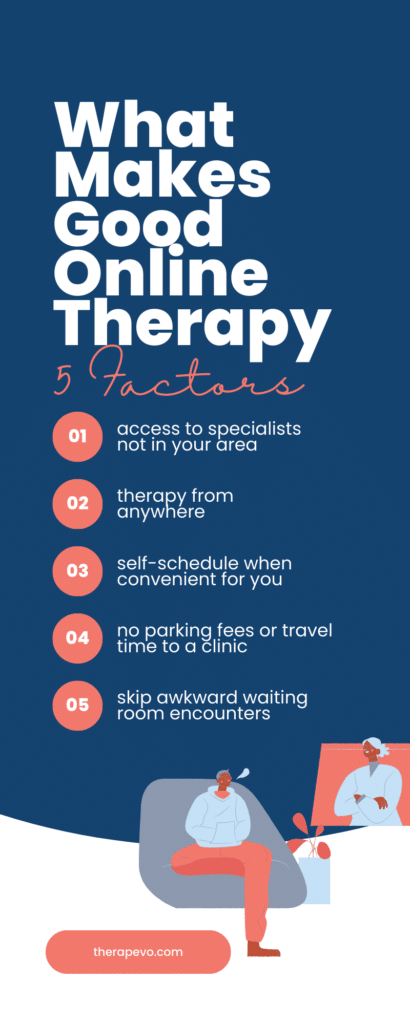
How Therapy Can Help with Chronic Pain Management
Did you know that over 50 million Americans and 8 million Canadians live with chronic pain daily? Are you one of them?1
Sometimes, it feels like you are not being heard as you search for a diagnosis for recurring health issues. Other times, the constant pain you are wrestling with will not leave you alone, no matter what medications you use. And you are wondering, “What do I try next?”
Therapy is unique in that it is tailored to you, the client, as there is no one-treatment-fits-all solution. So, when you bring your unique experience of chronic pain, we at Therapevo strive to help you where you are. Living with chronic pain is a massive undertaking all on its own. But we want to hear your experience and walk with you through it to live a healthier, restored life.
Read more: How Therapy Can Help with Chronic Pain ManagementWhat Happens When I Experience Chronic Pain?
Does your chronic pain stem from a traumatic experience? You might find working with a counselor who specializes in trauma helpful. Almost 1 in 5 people with chronic pain meet the criteria for Posttraumatic stress disorder (PTSD)2. PSTD is a known risk factor for the development of chronic pain conditions, making therapy for trauma and pain management helpful. Therapevo has counselors who specialize in online trauma counseling and would love to walk with you through this.
When you experience physical pain, there is a lot going on in your brain. And a lot of that has to do with your emotions.
Experiencing physical pain alerts other areas, including those that are sensory, emotional, cognitive, and behavioral3. When pain becomes chronic, it impacts more than just one area in your brain. All of these areas of your brain are connected, which is why experiencing long-term pain also impacts other areas.
Sensory Impact
- Sensory overload
- Hypersensitivity to pain
- Pain is no longer in one central location as it has diffused
Sensory effects relate to how your body perceives pain signals. For example, if you have chronic neck pain, the sensory regions of your brain become even more alert to pain signals from your back. If someone were to pat you on the shoulder, the pain can be felt in the lower back as the pain is no longer in just one location4. It’s as if the volume of your pain sensors has been turned up higher than usual.
Emotional Impact
- Depression or anxiety
- Frustration and anger
- Hopelessness
Emotional effects are about how pain influences your feelings. Chronic pain often contributes to emotional changes like increased irritability or frustration, even depression, anxiety, and substance use disorders5. You might find yourself feeling unusually sad or down because the pain makes it hard to enjoy activities you used to love. For instance, someone who enjoyed hiking might become discouraged and sad because the pain now makes it too difficult to go on trails.
Cognitive Impact
- Struggles to remember information
- Lowered attention span
- Difficulty focusing
Cognitive effects deal with how pain affects your thinking. Chronic pain can make it hard to concentrate or focus, often referred to as “brain fog.” You might find it difficult to remember things, make decisions, or focus your attention6. If you’re dealing with constant pain, your brain is so busy processing the pain signals that it has less energy for other tasks. For example, you might go to the grocery store and forget what you came to buy or find it hard to follow along with a movie.
Behavioral Impact
- Social withdrawal
- Reduced physical activity
- Sleep disturbances
Behavioral effects refer to how pain changes your actions or behavior. Chronic pain might make you avoid activities that you think will worsen your pain, leading to a decrease in physical activity. This can create a cycle where less activity leads to more pain and stiffness. For instance, someone with knee pain might stop taking stairs to avoid the pain, which may lead to less overall movement. Additionally, you might develop sleep problems because the pain keeps you or your spouse awake at night. In turn, this can make the pain feel even worse the next day7.
This is why chronic pain can be helped by therapy! Often, emotional disorders simultaneously occur with chronic pain because the brain regions where pain is experienced are so interconnected with emotions8. This means dealing with pain can be worsened by struggling with depression, insomnia, or anxiety.
Wondering if online therapy will be a good fit for you as you seek healing from chronic pain? Read through the benefits of online therapy and learn how we can help you.
When Should I Seek Therapy for Chronic Pain Management?
While therapy at any point in time is good for someone who might be struggling with pain chronically, you might be wondering if therapy will be effective in helping you. Why try something else when nothing has worked so far for managing your chronic pain?
You might benefit from therapy:
- If you are on the waiting list for treatment
- If you have upcoming surgery with an added painful recovery
- If you cannot sleep
- If you have begun fearing the pain
- If you have begun feeling isolated as the pain restricts your actions
- If you are beginning to experience a chronic low mood or depression
- If you are dealing with the challenges of an invisible illness
- If your daily functioning is compromised
- If you are experiencing guilt or self-blame about your condition
- If you need support adjusting to a new diagnosis
If you are on the waiting list for treatment, that probably means you are waiting for health care to help you figure out pain management. In that time of waiting, fear and anxiety levels can be high as you have to live your normal life while balancing constant pain and discomfort. Therapy can you learn to think and cope with pain differently. For example, kids who have learned to manage and cope with chronic pain through therapy spend less time in the hospital9. Learning how to think about and cope with your pain differently helps!
If you have upcoming surgery with an added painful recovery, learning how to manage the pain ahead of time helps make the recovery easier. Therapy can help you focus on positive expectations, and remind you that you are ultimately in control. This creates high self-efficacy, meaning that you believe you can do it. Your therapist can also help you avoid catastrophizing about the pain10. These things all help to lower pain in recovery and enable you to take care of yourself post-operation in the way you need.
If you cannot sleep, seeing a therapist can help you. Often, sleep is affected by both pain and pain medication. At times, bad sleep can enable the chronic piece of the pain. Learning mindful habits about being present and learning to let go of stress can help with sleep and the chronic pain itself11.
If you have begun fearing the pain, the anxiety and pain may fall into a bit of a cycle. Pain can be a symptom of anxiety, and pain can cause anxiety about the health condition12. Seeing a therapist can help you break the pattern of avoiding the pain. You have the opportunity to face the pain and deal with it, so that it can finally go away. By managing your perception of the pain through thought restructuring, the stress, anxiety, and social isolation will decrease13.
If you have begun feeling isolated as the pain restricts your actions, you may find that seeing a therapist helps you get out more and receive the social support you need14. Maybe you have found yourself fearing the pain and so have limited your activities. Then your withdrawal led to isolation, and now you are struggling with the depression that often stems from loneliness and inactivity. Our therapists at Therapevo want to come alongside you and help you live a fuller life once again.
If you are beginning to experience a chronic low mood or depression, it may be stemming from your constant experience of pain15. A therapist can help you manage your perception of pain so that you can return to living a full life. When pain is more manageable and less scary, going out with friends and family is easier. And being social is a huge help for managing depression and keeping it at bay.
If you are dealing with the challenges of an invisible illness, you may feel isolated and want help navigating the unseen effect it is having on you. It is difficult to know when to disclose and what reactions you might receive16. Therapy offers a space to validate your experiences and cope with the misunderstandings or stigma associated with conditions that aren’t visibly apparent.
If your daily functioning is compromised, you probably want to no longer feel imprisoned by your chronic pain. When pain affects your ability to perform everyday tasks, therapy can help you modify your activities and set realistic goals to maintain independence17. You do not have to give up your work, family time, or social life.
If you’re experiencing guilt or self-blame about your condition, you may be wondering why you are experiencing chronic pain18. Therapy can help you work through feelings of guilt associated with not being able to engage in activities like you used to, helping to reframe self-perceptions and enhance self-compassion. You are doing the best that you can with what you have, and at Therapevo, we want to encourage you while helping you set yourself free from guilt.
If you need support adjusting to a new diagnosis, your therapist is here for you throughout the ups and downs. Coming to terms with a chronic condition can be challenging; therapy can guide you through accepting your diagnosis and planning for the future with optimism and practicality.
If you are married, as you navigate this struggle with chronic pain, you may not be sure how to navigate it together. Chronic health problems in marriage are better dealt with together, so at Therapevo, we work with couples as they navigate this struggle.
Areas you might want to work on in counseling:
- Negative attitude that pain is harmful and disabling
- Fear, avoidance, and reduced activity due to pain
- Expectations of passive treatments
- Tendency for depression and social withdrawal
- Social/financial problems
Therapy is helpful for chronic pain management because it helps to reduce it. By focusing on your fear of making the pain worse and learning to hold less stress and tension, you can reduce pain. Dealing with the pain is so important, and we are here to walk with you through the process.
What are the Benefits of Therapy for Chronic Pain Management?
You can bring any area of struggle with pain to therapy and receive effective help because of our multi-faceted approach. Whether it is fear of pain, exhaustion from pain, or grief over the life you wish you still had, counseling can help. In therapy, the core of chronic pain management is identifying what alleviates your pain and integrating those strategies into your daily life.
Here’s how therapy can help:
- Increasing mindfulness
- Lowering your fear of pain
- Helping you sleep better
- Preventing social withdrawal through pain management
Therapy encourages the practice of mindfulness, which involves being present in the moment and aware of our bodies and minds without judgment. This can help reduce the intensity of pain by shifting your focus away from distressing thoughts and sensations. Learning to relax and let go of stress by being present in the moment is one way that self-awareness can lower pain, as your future concerns no longer exacerbate the pain19.
Fear of pain can lead to a vicious cycle where the anticipation of pain increases stress and, ultimately, the pain itself. Learning to reframe negative thoughts and develop a healthier perspective towards your pain experience helps lower the pain you feel. By having a sense of control over your pain, it helps your brain manage the pain better20.
Poor sleep can exacerbate chronic pain. Therapists can help you improve sleep hygiene through routines that promote restfulness, such as establishing a regular sleep schedule, creating a calming bedtime ritual, and teaching relaxation techniques to reduce nighttime pain flare-ups. You will be able to work through the stress and anxiety that stops you from falling asleep, enabling you to begin restoring yourself to whole again.
Chronic pain can isolate you from social activities and personal relationships. Therapy helps by providing strategies to maintain social connections and stay active, which are crucial for mental health. At Therapevo, we can help you work through your fear of pain, which is limiting your activities21. We value relationships, and we know you do, too.
We can help you recognize your beliefs and attitudes about pain. In recognizing them, you can set goals for pain reduction and living life more fully. Pain does not have to rule your life, and with the help of a therapist you can learn to take back control of the pain through chronic pain management.
References
- Health Canada, “Canadian Pain Task Force Report: March 2021,” transparency – other, May 5, 2021, https://www.canada.ca/en/health-canada/corporate/about-health-canada/public-engagement/external-advisory-bodies/canadian-pain-task-force/report-2021.html; S. Michaela Rikard, “Chronic Pain Among Adults — United States, 2019–2021,” MMWR. Morbidity and Mortality Weekly Report 72 (2023), https://doi.org/10.15585/mmwr.mm7215a1. ↩︎
- Jonas Tesarz et al., “Pain Perception and Processing in Individuals with Posttraumatic Stress Disorder: A Systematic Review with Meta-Analysis,” Pain Reports 5, no. 5 (September 17, 2020): e849, https://doi.org/10.1097/PR9.0000000000000849. ↩︎
- Seoyon Yang and Min Cheol Chang, “Chronic Pain: Structural and Functional Changes in Brain Structures and Associated Negative Affective States,” International Journal of Molecular Sciences 20, no. 13 (January 2019): 3130, https://doi.org/10.3390/ijms20133130. ↩︎
- Mary M. Volcheck et al., “Central Sensitization, Chronic Pain, and Other Symptoms: Better Understanding, Better Management,” Cleveland Clinic Journal of Medicine 90, no. 4 (April 1, 2023): 245–54, https://doi.org/10.3949/ccjm.90a.22019. ↩︎
- “Chronic Pain and Mental Health Often Interconnected,” https://www.psychiatry.org:443/news-room/apa-blogs/chronic-pain-and-mental-health-interconnected. ↩︎
- Jintao Chen, Xinyi Wang, and Zherong Xu, “The Relationship Between Chronic Pain and Cognitive Impairment in the Elderly: A Review of Current Evidence,” Journal of Pain Research 16 (July 7, 2023): 2309–19, https://doi.org/10.2147/JPR.S416253. ↩︎
- Johan W. S. Vlaeyen et al., “Dimensions and Components of Observed Chronic Pain Behavior,” Pain 31, no. 1 (October 1987): 65–75, https://doi.org/10.1016/0304-3959(87)90007-8. ↩︎
- Yang and Chang, “Chronic Pain.” ↩︎
- Soumitri Sil et al., “Preliminary Evaluation of the Clinical Implementation of Cognitive-Behavioral Therapy for Chronic Pain Management in Pediatric Sickle Cell Disease,” Complementary Therapies in Medicine 49 (March 2020): 102348, https://doi.org/10.1016/j.ctim.2020.102348. ↩︎
- Lydia V. Tidmarsh, Richard Harrison, and Katherine A. Finlay, “Prehabilitation: The Underutilised Weapon for Chronic Pain Management,” British Journal of Pain 18, no. 4 (August 1, 2024): 354–64, https://doi.org/10.1177/20494637241250239. ↩︎
- Thanthullu Vasu et al., Chronic Pain Management ([S.l.]: tfm Publishing Ltd, 2021), https://twu.idm.oclc.org/login?url=https://search.ebscohost.com/login.aspx?direct=true&db=nlebk&AN=2916868&site=eds-live&scope=site. ↩︎
- Vasu et al. ↩︎
- K Ihns et al., “Evidence of Commonly Used Integrative Approaches with Pharmacotherapy for Chronic Pain Management,” Journal of Pain & Palliative Care Pharmacotherapy 38, no. 3 (September 2024): 302–17, https://doi.org/10.1080/15360288.2024.2390999. ↩︎
- Vasu et al., Chronic Pain Management. ↩︎
- Vasu et al. ↩︎
- Maureen Salamon, “Invisible Illness: More than Meets the Eye,” Harvard Health, May 1, 2023, https://www.health.harvard.edu/diseases-and-conditions/invisible-illness-more-than-meets-the-eye. ↩︎
- María Dueñas et al., “A Review of Chronic Pain Impact on Patients, Their Social Environment and the Health Care System,” Journal of Pain Research 9 (June 28, 2016): 457–67, https://doi.org/10.2147/JPR.S105892. ↩︎
- “Self-Blame and Chronic Illness | Psychology Today Canada,” https://www.psychologytoday.com/ca/blog/chronically-me/202111/self-blame-and-chronic-illness. ↩︎
- Vasu et al., Chronic Pain Management. ↩︎
- Sil et al., “Preliminary Evaluation of the Clinical Implementation of Cognitive-Behavioral Therapy for Chronic Pain Management in Pediatric Sickle Cell Disease.” ↩︎
- Vasu et al., Chronic Pain Management. ↩︎












